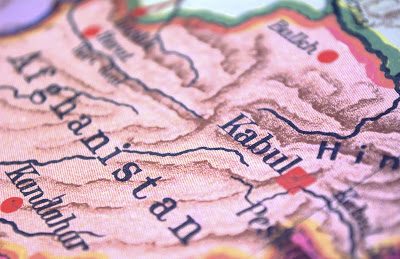It’s Too Late for India to Rethink Its Failed Afghan Strategy

India already discredited itself too much in both the eyes of the Afghan population and the rest of the world by being the only country to consistently stand with the unpopular puppet government in Kabul that even the US itself has all but officially abandoned for a rethinking of its failed strategy there to reap any benefits, though this hasn’t stopped some Indian pundits from desperately lobbying for exactly that as of late after it became obvious that every actor of significance has finally embraced the peacemaking position of its rivals in the global pivot of state of Pakistan.
An interesting trend has become discernible shortly after Pakistani Prime Minister Khan’s successful trip to the US, and it’s that Indian pundits are now desperately lobbying for their country to rethink its failed strategy towards Afghanistan after it became obvious that every actor of significance has finally embraced the peacemaking position of its rivals in the global pivot state. The popular online Indian outlet LiveMint published an op-ed titled “Time to revise our Afghan strategy“, while the Indian web journal South Asian Monitor bemoaned the fact that “Trump’s ‘Mediation’ Talk Reflects India’’s Marginalisation In Afghanistan“.
Both pieces make the case that India’s approach towards Afghanistan has failed and that something must urgently be done to repair the geopolitical damage, yet they’re bereft of any realistic solutions. In addition, this new line of thinking sharply contrasts with the establishment’s recalcitrant stance of clinging to the country’s failed policy out of principle in spite of how counterproductive it is, as was elaborated on by the author in an analysis earlier this year titled “Reading Between The Lines: India Has Sour Grapes Over America’s Afghan Peace Talks“, which suggests that those two previously mentioned articles might be intended to “test the water” and see whether the state will finally realize the seeming inevitability of finally changing its position.
Even if New Delhi does, however, that won’t salvage its strategy after it already discredited itself too much both in the eyes of the Afghan population and the rest of the world by being the only country to consistently stand with the unpopular puppet government in Kabul that even the US itself has all but officially abandoned. India also already ruined the trust that it was rapidly developing with its new military-strategic partners in America by refusing to support the Pakistani-facilitated peace process, to say nothing of making Russia seriously suspicious of its intentions in this respect. It’ll take more than lip service to fix this reputational damage in the future.
Furthermore, any possible change in India’s stance would be blatantly opportunistic at this point, thus making it self-defeating in the soft power sense. It would also represent a powerful diplomatic victory for Pakistan, too, something that Modi’s ultra-jingoist Hindutva government is loath to deliver to its rival after bragging for years about its so-called “successful strategy” of “isolating” it. Nevertheless, Modi has nobody to blame for this unenviable predicament but himself, as he’s the one who ironically ended up isolating India from the rest of the world, and the consequences of his massive strategic blunder will haunt his country for years to come.
*
Note to readers: please click the share buttons above or below. Forward this article to your email lists. Crosspost on your blog site, internet forums. etc.
This article was originally published on Eurasia Future.
Andrew Korybko is an American Moscow-based political analyst specializing in the relationship between the US strategy in Afro-Eurasia, China’s One Belt One Road global vision of New Silk Road connectivity, and Hybrid Warfare. He is a frequent contributor to Global Research.

